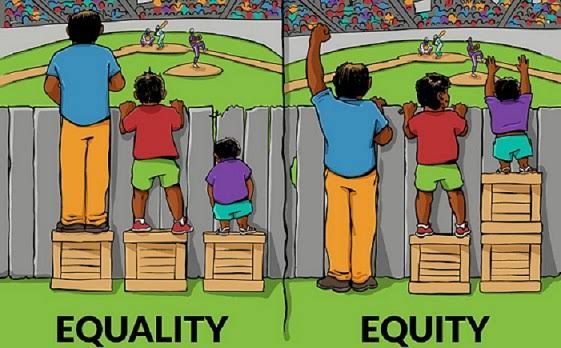
Islam brought the message of perfect equality for the human race. He came to liberate man from the shackles of values that have created obstacles in the way of equality. Now we want to see how this doctrine has been implemented in real life.
At that time the slave-class of the whole world existed as a separate class separate from the independent human race. The situation was similar in the Arabian Peninsula. When we consider the deeds of Hazrat Muhammad (peace be upon him) in this regard, we see that he married his cousin and daughter Zaynab of Hashemite tribe of Quraysh to his freed slave Zayd. Marriage is a very delicate matter, in which the equality of both the parties becomes more serious than all the other questions.
It was not possible for any person other than the Prophet (peace be upon him) and any power other than Islam to do such a great thing - even today it is not possible anywhere else except the Muslim world. Slavery is illegal in the United States, but it is illegal for a Negro to marry a white woman, no matter how inferior. Not only that, but it is still forbidden for a Negro to sit next to a white man on a bus or in any other vehicle, restaurant, theater or any other place.
In the early days of the Hijrah, the Prophet (peace be upon him) established a bond of brotherhood between the Ansar and the Muhajirs. Brotherhood was established between Khaled ibn Ruayisha Khashyani and Bilal ibn Abi Rabah. This brotherhood is not limited to words - it takes the form of a strong and mature relationship, like a blood relationship. Kinship is established between them in all matters of life and property.
Then the Prophet (peace be upon him) sent Zayed as a general in the battle of Muta. He then made his son Usama (R) the commander of an army in the battle of Rome, most of whom were Muhajirs and Ansar. In this army were also Hazrat Abu Bakr (R) and Oman (R) - who were the closest companions and viziers of the Prophet (SAW) and later were elected caliphs with full consensus. Sa'd ibn Abi Akkas, a close relative of the Prophet (peace be upon him), was also in the army led by Usama. He was a member of the Banu Johra tribe, the cousin of the Prophet (peace be upon him). Moreover, he was one of the Quraysh who converted to Islam in the early days of the Prophethood. God gave him the grace to convert to Islam in just seventeen years. He was a very rich and dignified Loki. He was also a highly experienced warrior and at the same time was motivated by jihadi motivation.
After the death of the Prophet (peace be upon him), when Hazrat Abu Bakr (peace be upon him) decided to send Osama's army back to war, he retained the general appointed by the Prophet (peace be upon him). When he came out of Medina to bid farewell to the general, Usama was riding, and Khalifatul Muslimeen was walking. Osama is very reluctant to do so. He would ride on his own, and the old caliph would walk on foot - something he could not normally accept. So Usama said, Messenger of the Caliphate, you too should ride, or I will come down. Khalifa swore, I swear to God! You don't go down. By God! Don't go down. I swear to God I will not ride. If I walk in the way of Allah for a while, I will not be harmed. Then Hazrat Abu Bakr (R) suddenly remembered that Hazrat Omar may need him. The problem was that Omar was a soldier in Osama's army. Since Usama was the commander of that force, Omar's permission was required to keep Omar (R)The caliph said, If you feel good, please leave Omar to help me.
Coming here, the pace of history came to a standstill. If you feel good, please leave Omar (R) for my help. We do not have the language to explain how the caliph can say this to his ordinary commander in a very high position.
History is moving forward. We see that Omar Ibn Khattab (R) appointed Ammar Ibn Yasar (R) as the ruler of Kufr. But he too was of slave class origin. Our imaginary eyes become more detailed when we see that Sohail, son of Amr Ibn Hisham, Abu Sufyan Ibn Harb and other Quraysh chiefs were standing and Hazrat Omar called two former slaves Sohaib (R) and Bilal (R) first. Because they were the companions of the Prophet (peace be upon him) and the soldiers of the battle of Badr. I have never seen Abu Sufyan utter the words of ignorance in an indistinct angry tone. We were made to stand at the door and the slaves were called inside.